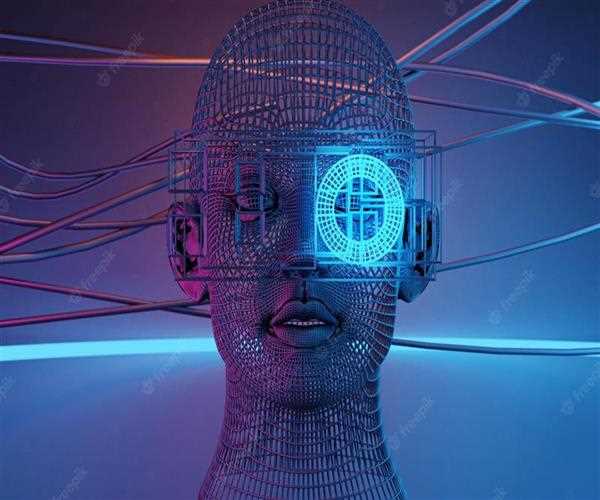
30-Dec-2022
Role of Artificial Intelligence in Gaming
Artificial Intelligence (AI) is rapidly becoming an integral part of gaming. Nowadays, many gamers are using AI-based technologies to enhance their gaming experience and improve their skills. As technology advances, AI is now being used to create immersive games and offer players a more realistic and engaging experience. But what exactly does AI do in the gaming industry? In this blog post, we will dive into the role of Artificial Intelligence in gaming, how it impacts game development, and how it can be used to create a better gaming experience for players.
What is Artificial Intelligence?
- Artificial intelligence (AI) is a field of computer science and engineering focused on the creation of intelligent agents, which are systems that can reason, learn, and act autonomously.
- In the context of gaming, AI refers to the use of computational techniques to create game characters or agents that exhibit intelligent behaviour. This can include pathfinding and decision-making, as well as more general abilities such as learning and problem-solving.
How Artificial Intelligence is Used in Gaming
- In the gaming industry, artificial intelligence (AI) is used to create non-player characters (NPCs) that can act independently of the player and make decisions based on their in-game surroundings. AI is also used for game design purposes, such as to generate new levels or create dynamic challenges for players. In some cases, AI is even used to teach players how to play a game through so-called “tutorial bots.”
- AI technology has been used in gaming since the 1970s, but it wasn’t until the 1990s that AI really began to take off in this industry. One of the earliest examples of AI in gaming was in the arcade classic “Pac-Man,” where the ghosts that chase Pac-Man are controlled by simple AI algorithms.
- More sophisticated AI can be found in first-person shooters like “Half-Life 2” and real-time strategy games like “StarCraft.” In these games, NPCs are able to react realistically to changes in their environment and make strategic decisions based on what they see and hear.
- The use of AI in gaming has come a long way since its humble beginnings, and there are now many different ways that developers can choose to implement it. Some developers opt for very simple AI that only handles basic actions like walking and shooting, while others create much more complex systems that allow NPCs to show humanlike emotions and interact with players in believable ways. Whatever approach
Benefits of Artificial Intelligence in Gaming
- Artificial intelligence is playing an increasingly important role in the world of video gaming. AI is used to create more realistic and believable non-player characters, to design better game environments, and to create new gameplay experiences.
- AI can be used to create non-player characters (NPCs) that are more believable and realistic. AI-created NPCs can react realistically to the player’s actions and choices, making for a more immersive gaming experience.
- AI can also be used to design better game environments. By using procedural generation, AI can create game levels that are more varied and interesting than those created by hand. AI-created game environments can also be more realistic, giving players a sense of truly being in another world.
- Finally, AI can be used to create new gameplay experiences that would not be possible without it. For example, games that feature procedurally generated content or that use machine learning algorithms can offer players unique and innovative gameplay experiences.
Drawbacks of Artificial Intelligence in Gaming
- The development of artificial intelligence has led to some interesting applications in the gaming industry. However, there are also some drawbacks to using AI in gaming.
- One of the biggest drawbacks is that AI can often make games too easy. This can make the gaming experience less enjoyable for players who are looking for a challenge. Additionally, AI can sometimes create strange and unexpected behavior that can be frustrating for players.
- Another downside to using AI in gaming is that it can take away from the immersion of the game. When gamers are playing against an AI opponent, they may feel like they are not really in the game. This can ruin the suspension of disbelief and make the game less enjoyable.
- Finally, AI-based games can be expensive to develop and maintain. Because of the complex algorithms involved, artificial intelligence games can require a lot of processing power and storage space. This can make them unaffordable for many gamers.
Conclusion
Artificial intelligence has become an essential part of gaming, with AI technology making games more realistic, immersive and engaging. AI is used to create intelligent non-player characters that can respond in a believable way to the player’s actions and decisions. This allows for greater levels of challenge as well as providing a far richer experience than conventional game play. As developers continue to refine and expand upon their use of artificial intelligence in gaming, it looks like players will only get better experiences in the future.

SEO and Content Writer
I am Drishan vig. I used to write blogs, articles, and stories in a way that entices the audience. I assure you that consistency, style, and tone must be met while writing the content. Working with the clients like bfc, varthana, ITC hotels, indusind, mumpa, mollydolly etc. has made me realized that writing content is not enough but doing seo is the first thing for it.
Join Our Newsletter
Subscribe to our newsletter to receive emails about new views posts, releases and updates.
Copyright 2010 - 2026 MindStick Software Pvt. Ltd. All Rights Reserved Privacy Policy | Terms & Conditions | Cookie Policy